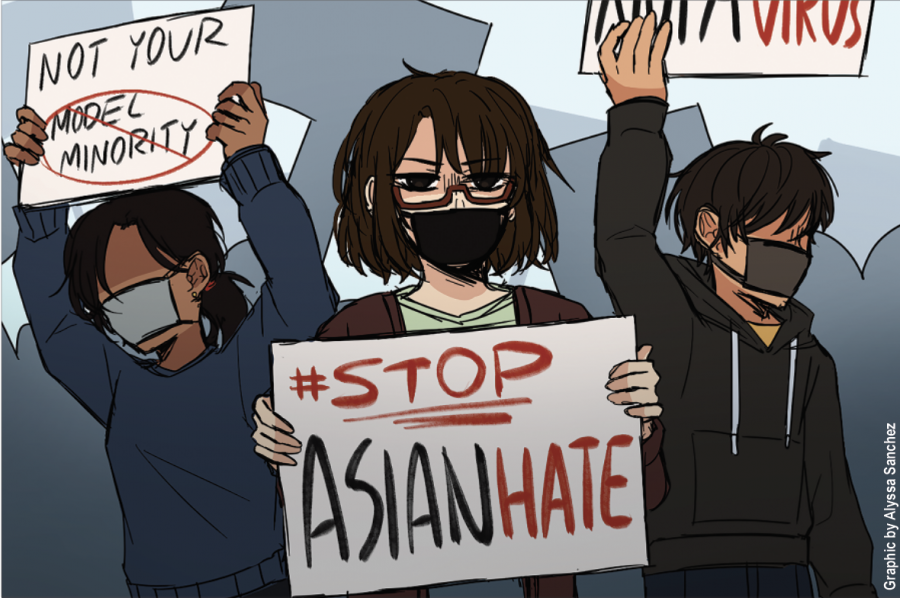Stand up against Asian hate
In March of 2020, a week before Illinois’ stay-at-home order, a formerly close friend said, “I hate Chinese people. I heard they spread the virus by eating bats.” I didn’t know what to say, so I said nothing.
I later regretted it. Her comment was racist, perpetuating a racist sentiment that uses one group of people as a scapegoat in order to continue to ostracize them.
Discrimination against Asians has intensified during the pandemic, but unequal treatment toward Asian Americans has existed for decades. I have experienced this treatment my entire life.
When I lived in Missouri, my sixth grade social studies teacher frequently referred to me by the name of a Korean transfer student in our class and continued to mispronounce my name even when corrected. Asia consists of many countries with distinct languages and cultures, but it felt like my teacher would not recognize that my classmate and I were different people of different ethnicities.
When I moved to Northbrook, I was happy to be surrounded by a significant Asian population at school for the first time. I wasn’t judged for speaking another language. My family received school emails translated to Mongolian. I assumed I wouldn’t face any discrimination in a community with Asian diversity.
My assumption was wrong.
During my freshman year, a peer approached me before a history test and demanded that I teach him about the Chinese Guomindang government. He claimed I should’ve known more about it because I was Asian. I said I wasn’t Chinese. He shrugged and said, “All Asian people look the same.”
Now, with every news article I read covering countless attacks on Asian elders and other individuals, the more my caution and terror grow.
I fear I will be struck down in the street. I fear for the wellbeing of my parents going to work every day. I fear for the lives of my grandparents if they visit the United States.
I would request that you imagine this fear for a grandparent, friend or loved one, but that personal level of pain shouldn’t be necessary to empathize with other human beings.
Though the instances of racism I’ve experienced are deeply demoralizing, disheartening and disappointing, they haven’t reflected the sentiment expressed by Glenbrook North as a whole.
After six Asian individuals were shot and killed in Atlanta on March 16, the district included a statement of solidarity in an email welcoming students back from break. GBN’s acknowledgement of these events made me feel slightly better. The Pan-Asian Student Society hosted an event on April 22 to discuss hate crimes targeting the Asian American community. I was thankful to have a space where these issues could be discussed.
These actions have helped make the environment at school feel more inclusive, and I’m glad our community has responded to the severity of these events. However, the conversation about discrimination and violence against Asian Americans must continue. These issues cannot fade into the background.
The pandemic is tiring for everyone, so it is easy to dismiss the opportunity to discuss the rise in violence against Asian Americans. But the atmosphere of fear resulting from hate against one group of people affects everyone, not just those who are targeted.
Centuries of precedent have proven that if we don’t make a whole-hearted effort in this moment to stop the bigotry, it will persist. So, sign and share petitions. Make requests to teachers to reflect on news articles in discussion-based classes. Listen to others’ stories. Have open conversations with peers about discriminatory words and actions. Individual action may not dismantle systemic racism, but it brings us closer to a world with diminished discrimination.
Take a stand against Asian hate.


